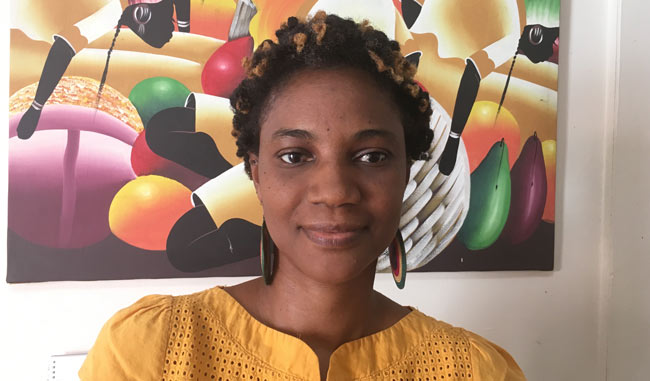Tessa Barry
MSc International Development: Economics and Management of Rural Development
Why did you choose to study at The University of Manchester?

As a Caribbean National, the Eastern Caribbean $100 note bears the image of a Nobel Laureate Sir Authur Lewis. His historical connection to the University of Manchester as Caribbean national was one of my reasons for deciding to study there. Additionally, I did my research and found that the University has an exceptional track record globally for development research and the researchers are widely recognized for their contributions in development work outside of the UK. Realizing that the University also accommodated a wide cross section of students from various countries across the world I realized that it offered the perfect environment international linkages. Further to that, I already had a family and completing a master’s in one year was an added draw.
Why did you choose your particular course?
Coming from a rural farming community in a small island, I have always had a passion for empowerment of the people in rural communities. I chose this particular course because it allowed for the perfect combination of my interest in the development of rural communities. I already had a background in Economics and Business. The course offered a combination of economic studies linked with rural development. It felt like all my interests were combined to make one course. My thesis focused on a review of rural advisory services (agricultural extension services) in the Caribbean provided for the empowerment of rural women. It entailed a review of the policies and programmes of extension in the region
Has your qualification helped you in your career?
My qualifications have helped me greatly in my career as a lecturer in the Faculty of Food and Agriculture at the University of the West Indies. Agriculture is the main livelihood in rural communities and my qualifications have helped me make the connection with agriculture and rural development in a practical and significant way to the students of my classes. My field research experience in the course has contributed significantly in the type of person I am in the field with the various research I am currently engaged in. I did not only learn field research techniques and reporting skills; I also learnt the importance of recognizing and respecting the people who I engage with when collecting data and how important their contributions are to meaningful research. Additionally, the training I gained in writing essays; I can now rely on as a guide in writing academic papers.
Were there any specific modules or lecturers who particularly inspired you?
I was particular inspired by the module on field research which took us to Uganda. This was my first visit to an African Country. It was an experience I would never forget, not just because of the academic learning contributions I gained but also because of the experience of engaging with the locals and also forming bonds with the students from diverse countries who I was studying together with. Still today I am connected with friends. Dr. Admos Chimhowu my supervisor, was an inspiration because of the way he believed that everyone could achieve the highest at Manchester.
What is your best memory from your time at Manchester?
I loved the opportunity of being in a multicultural environment. I left there being aware of Asian, African, European, American dishes and culture. I am an avid sports fan and I happened to be there when Manchester City and Manchester United were in the finals of the Premier League. Also 2012 was the year when England hosted the Olympics. I volunteered as a helper with the swimmers and got to experience a few practice basketball games. I love the game of cricket and as a West Indian, the opportunity to visit Old Trafford Cricket Ground in Greater Manchester where West Indies Cricket team played some great games was quite a rewarding experience. The City of Manchester is a rich and diverse city and the University’s entire ambiance is second to none. I loved the library facilities and the fact that everything was right there. If you are religious there are churches, if you are historical there are museums and historical buildings, if you are sports oriented and an outdoor person, there are parks, trails, stadia, if you are social, there are bars, shopping and recreational centres, if you love cuisine there are a hosts of different restaurants from West Indian to Asian dishes. My greatest takeaway experiences were the days and sometimes nights spent with my course mates in Sir Authur Lewis Building, not only doing academic work but exchanging ideas and learning of each other’s culture. Being in that building meant a lot to me as a West Indian.
Do you have any tips or advice for current or prospective students?
I would say this is one of the best places for all round development. Embrace the opportunity for multicultural diversity. If you have group assignments tackle them early and engage with each other. The tutorials are extremely helpful in shearing experiences and bringing realistic meaning to your course topics, please attend them. Get involved in something meaningful like mentoring or volunteering with an NGO. Above all manage your time wisely, a year goes by rather quickly and before you know it your time is up at Manchester. Ensure that you leave there with at least one bonding friend from somewhere in some other part of the world, you never know where your career will take you.
